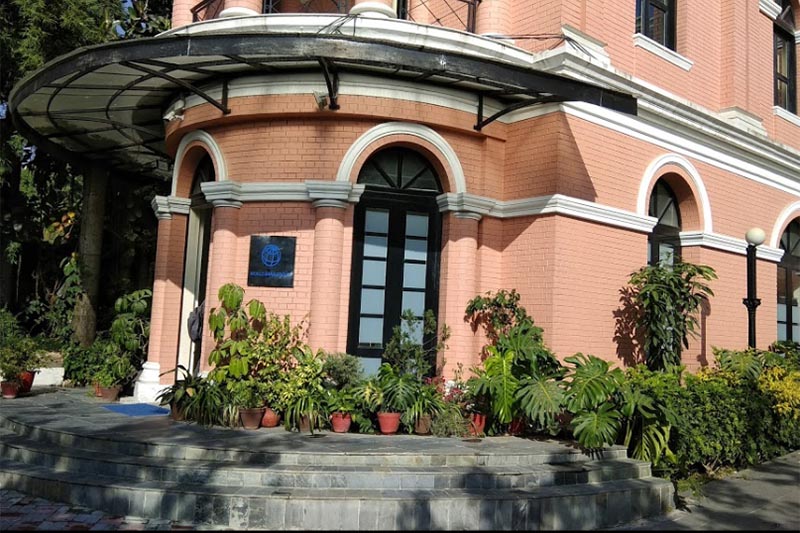‘Nepal’s GDP growth to remain low this fiscal’
KATHMANDU, JANUARY 6
The World Bank has forecast that Nepal’s economic growth with remain depressed this fiscal year owing to the adverse affects of coronavirus pandemic.
In its flagship report titled ‘Global Economic Prospects’, the World Bank has said the country’s economic growth is estimated to have decelerated to just 0.2 per cent in fiscal 2019- 20, 1.6 percentage points lower than its June 2020 projections; and Nepal is expected to record GDP growth of 0.6 per cent in the current fiscal year, which is 1.5 percentage points lower than its previous estimate.
In the South Asia region, the bank has said the economies that depend heavily on tourism and travel have been especially hard hit. These include Nepal, Maldives, and Sri Lanka.
The report has said the COVID-19 pandemic has caused deep output losses and contributed to a sharp rise in poverty and unemployment in South Asia. Output in the region contracted by an estimated 6.7 per cent in 2020, reflecting the effects of the pandemic and nationwide lockdowns, particularly in Bangladesh and India.
Activity rebounded in the second half of last year, led by industrial production, as initial stringent lockdowns were eased.
In India, the pandemic hit the economy at a time when growth was already decelerating. Output is estimated to contract by 9.6 per cent in fiscal year 2020-21, reflecting a sharp drop in household spending and private investment.
In Bangladesh, which had been one of the fastest growing emerging market and developing economies prior to the pandemic, growth is estimated to have decelerated to two per cent in fiscal 2019-20.
In Pakistan, growth is estimated to have contracted by 1.5 per cent in fiscal year 2019-20, reflecting the effects of localised COVID-19 containment measures as well as the impact of monetary and fiscal tightening prior to the outbreak.
The region is projected to grow by 3.3 per cent in 2021. Weak growth prospects reflect a protracted recovery in incomes and employment, especially in the services sector, limited credit provisioning constrained by financial sector vulnerabilities, and muted fiscal policy support. The forecast assumes that a vaccine will be distributed on a large scale in the region starting the second half of 2021 and that there is no widespread resurgence in infections.
In India, growth is expected to recover to 5.4 per cent in 2021, as the rebound from a low base is offset by muted private investment growth given financial sector weaknesses. In the financial sector, non-performing loans were already high before the pandemic. In Pakistan, the recovery is expected to be subdued, with growth at 0.5 per cent in fiscal 2020- 21. Growth is projected to be held back by continued fiscal consolidation pressures and service sector weakness.
In economies that rely on external sources of growth such as manufacturing exports (Bangladesh) and tourism (Nepal, Bhutan, Maldives, and Sri Lanka), the recovery is likely to be particularly modest. Tourism revenue is likely to remain significantly below pre-pandemic levels because of depressed demand as potential tourists remain wary of social interactions and continued restrictions on international travel, although recent vaccine news offers hope.
The World Bank has forecast Nepal’s GDP growth will stand at 2.5 per cent in fiscal year 2021-22.
Risks to the outlook are tilted to the downside, the World Bank has cautioned.
They include more severe and longer-lasting infection rates from the pandemic, financial and debt distress caused by an abrupt tightening of financing conditions or possible widespread corporate bankruptcies, adverse effects of extreme weather and climate change, weaker-than-expected recoveries in key partner economies, and a worsening of policy- and security-related uncertainty.
Additional stress on domestic banks in the region could be triggered by the economic consequences of a more protracted recovery from the pandemic, which in turn could lead to a rise in bankruptcies and weaken the balance sheets of the banking and non-banking sectors among several economies of the region (Bangladesh, Bhutan, India and Sri Lanka). Extreme weather events also remain important regional risk.
Meanwhile, the global economy is expected to expand four per cent in 2021, assuming an initial COVID-19 vaccine rollout becomes widespread throughout the year. A recovery, however, will likely be subdued, unless policy makers move decisively to tame the pandemic and implement investment-enhancing reforms, the World Bank has said.
Although the global economy is growing again after a 4.3 per cent contraction in 2020, the pandemic has caused a heavy toll of deaths and illness, plunged millions into poverty, and may depress economic activity and incomes for a prolonged period.
Top near-term policy priorities are controlling the spread of COVID-19 and ensuring rapid and widespread vaccine deployment. To support economic recovery, authorities also need to facilitate a re-investment cycle aimed at sustainable growth that is less dependent on government debt.






